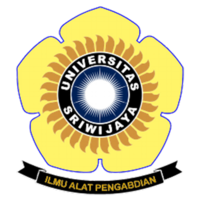Evaluasi Status Kesuburan Tanah Sawah Desa Tebing Kaning Kabupaten Bengkulu Utara
Abstract
Wahyuni T, Kusnadi H, Ivanti L. 2020. Evaluation Of Soil Fertility Status Of Tebing Kaning Village, North Bengkulu District. In: Herlinda S et al. (Eds.), Prosiding Seminar Nasional Lahan Suboptimal ke-8 Tahun 2020, Palembang 20 Oktober 2020. pp. xx. Palembang: Penerbit & Percetakan Universitas Sriwijaya (UNSRI).
Land cultivated for agriculture has different levels of fertility. Proper soil management is an important factor in determining the growth and yield of plants to be cultivated. The purpose of this study is to identify the rice field fertility variables, conduct an evaluation, and study alternative management according to the soil fertility status. The assessment was carried out in January - March 2020, sampling was carried out in Tebing Kaning Village and soil analysis was carried out at the Bengkulu AIAT Testing Laboratory. The methodology used includes: preparation, implementation of soil sampling, laboratory analysis, and preparation of applicable technology recommendations. In practice, individual soil sampling is used as a composite soil sample, 1 composite soil sample consisting of 10-15 individual soil samples. The number of composite soil samples taken were 10 composite soil samples. Soil analysis data were assessed as CEC, C-Organic, Base Saturation, P-total, K-total, and pH H2O. Based on the results of the analysis, the rice fields of Tebing Kaning Village are divided into 2 fertility classes. Block I, III, and IV with 3 dividers (K-total, CEC, and KB), and Block II with 4 boundaries (C-Organic, K-total, CEC, and KB). The alternative management that needs to be done is to return the straw to the paddy fields in blocks I, III, and IV and the addition of organic matter in block II.
Land cultivated for agriculture has different levels of fertility. Proper soil management is an important factor in determining the growth and yield of plants to be cultivated. The purpose of this study is to identify the rice field fertility variables, conduct an evaluation, and study alternative management according to the soil fertility status. The assessment was carried out in January - March 2020, sampling was carried out in Tebing Kaning Village and soil analysis was carried out at the Bengkulu AIAT Testing Laboratory. The methodology used includes: preparation, implementation of soil sampling, laboratory analysis, and preparation of applicable technology recommendations. In practice, individual soil sampling is used as a composite soil sample, 1 composite soil sample consisting of 10-15 individual soil samples. The number of composite soil samples taken were 10 composite soil samples. Soil analysis data were assessed as CEC, C-Organic, Base Saturation, P-total, K-total, and pH H2O. Based on the results of the analysis, the rice fields of Tebing Kaning Village are divided into 2 fertility classes. Block I, III, and IV with 3 dividers (K-total, CEC, and KB), and Block II with 4 boundaries (C-Organic, K-total, CEC, and KB). The alternative management that needs to be done is to return the straw to the paddy fields in blocks I, III, and IV and the addition of organic matter in block II.
Keywords
fertility status, paddy field, tebing kaning village
Full Text:
PDFArticle Metrics
Abstract view : 1205 timesPDF - 2820 times
Refbacks
- There are currently no refbacks.

